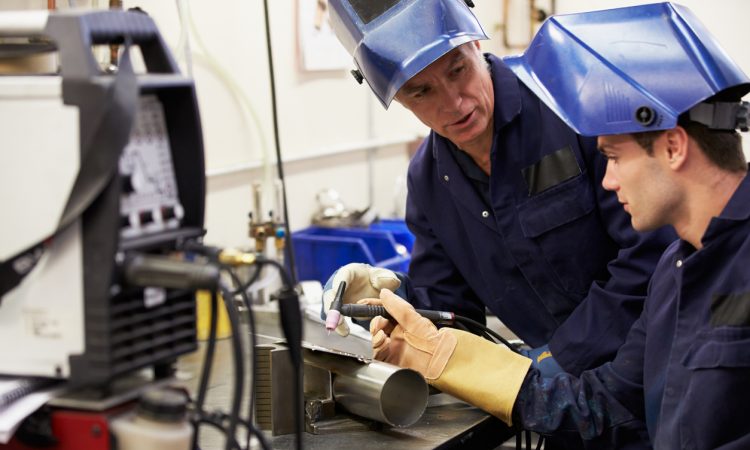High schools today are exciting and innovative places to learn. Students are learning in ways that were unimaginable five years ago. Further, it has been affirming and motivating to see the recent research from the OECD on career readiness. It indicates that students need to be actively engaged in exploring, experiencing and thinking about their future and, when they do so, there is longitudinal data from around the world showing improved outcomes for adulthood.
In New Brunswick, high schools are adapting and adopting new ways of engaging and motivating students for future excellence. The province has taken great strides to incorporate various approaches to best support the future success and happiness of young New Brunswickers.
From Real World Labour Market Information Challenges to a portable welding training centre, the following are some of New Brunswick’s exciting advancements in Career Connected Learning:
Centres of Excellence: The provincial government works with employers to help primary and secondary school students understand, and prepare for, employment opportunities in areas of strategic economic importance. In what is a largely rural province, the strategy is driven by a desire to encourage and enable students to stay in the province after graduation and to address skills shortages. The approach is co-financed by employers in the province. Under the umbrella of Future New Brunswick, the education department has created four Centres of Excellence focused on priority economic areas identified by the province: health, energy, digital learning and entrepreneurship.
Essential Skills Achievement Pathway: The Essential Skills Achievement Pathway (ESAP) Program is an opportunity for students to earn a high school diploma that prepares them for a post-secondary education, apprenticeship or the world of work. The program consists of personalized learning opportunities that allow students to explore their skills, talents, abilities and interests while intentionally attaining the nine federally identified Essential Skills. Proficiency in these skills are demonstrated and evaluated through problem– and project-based learning in the essential skills classroom, content-specific courses, community experiential learning and workplace opportunities. The ESAP program prepares students for the current skills-based economy as well as future work, learning and life.
Mentorship Virtual Coop: This highly personalized course provides equitable access to experts by virtually connecting motivated, career-aspirational students to subject-specific mentors. The course provides students with an in-depth, self-guided framework to fully explore their career path. Student and mentor meet weekly and the mentor provides real-world perspective and guidance on their role. Meetings are guided by the student and are scheduled on the availability of the mentor.
Real World Labour Market Information (LMI) Challenges: New Brunswick communities are facing a variety of LMI challenges that affect everyone. The Government of NB along with the Canadian Career Development Foundation are offering high school students an opportunity to be heard on how to best address these real-world challenges through project-based learning.
Virtual Reality Career Development Program: Allows students the opportunity to experience various simulated work scenarios (with a focus on skilled trades occupations) using innovative virtual reality technology. When using the kits, students can engage in work-related tasks that align with current labour market needs.
Welding on Wheels: The portable welding training centre provides exposure to in-demand careers in New Brunswick to schools and youth who do not currently have access to facilities. The main goal is to increase access to programs and create opportunities for youth – mainly in smaller rural schools but also in some urban schools that lack facilities. Students can earn high school credits and/or secondary pre-apprenticeship hours. Further, Mind over Metal camps are offered to middle-school students over the March and summer breaks.
Participation in various and more frequent Career Connected Learning highlights an important consideration: What follows the experience? How do we ensure that students are truly reaping the benefits of having engaged in these opportunities? Now is the time to be equally innovative, and may I even say, dreamy, when we consider the methods for student reflection and school-based supports/guidance essential in taking career-connected learning opportunities to the next level.
Stay tuned for the next article, where we will dream big. Some may be concerned with too much change and too quickly, but I look at the resilience and adaptability of the education system over the last two years and think anything is possible!





